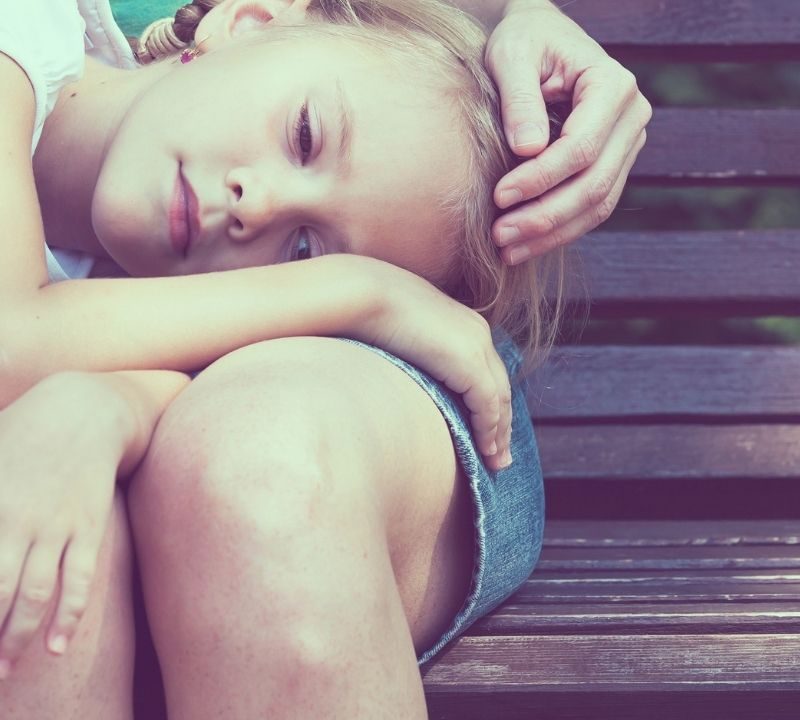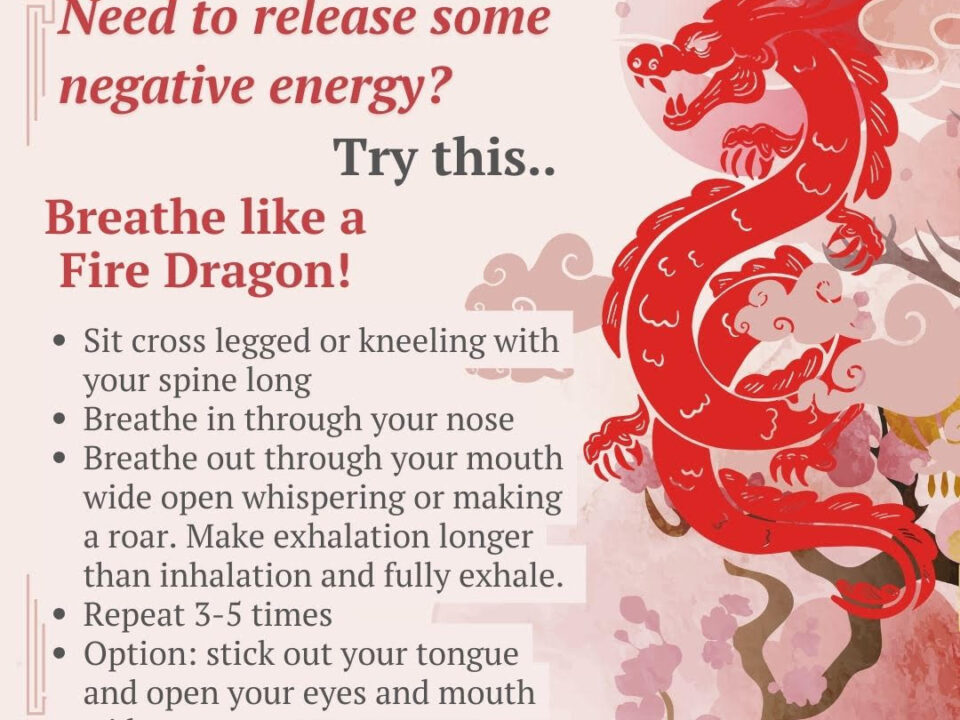
Simplicity Parenting
19/05/2020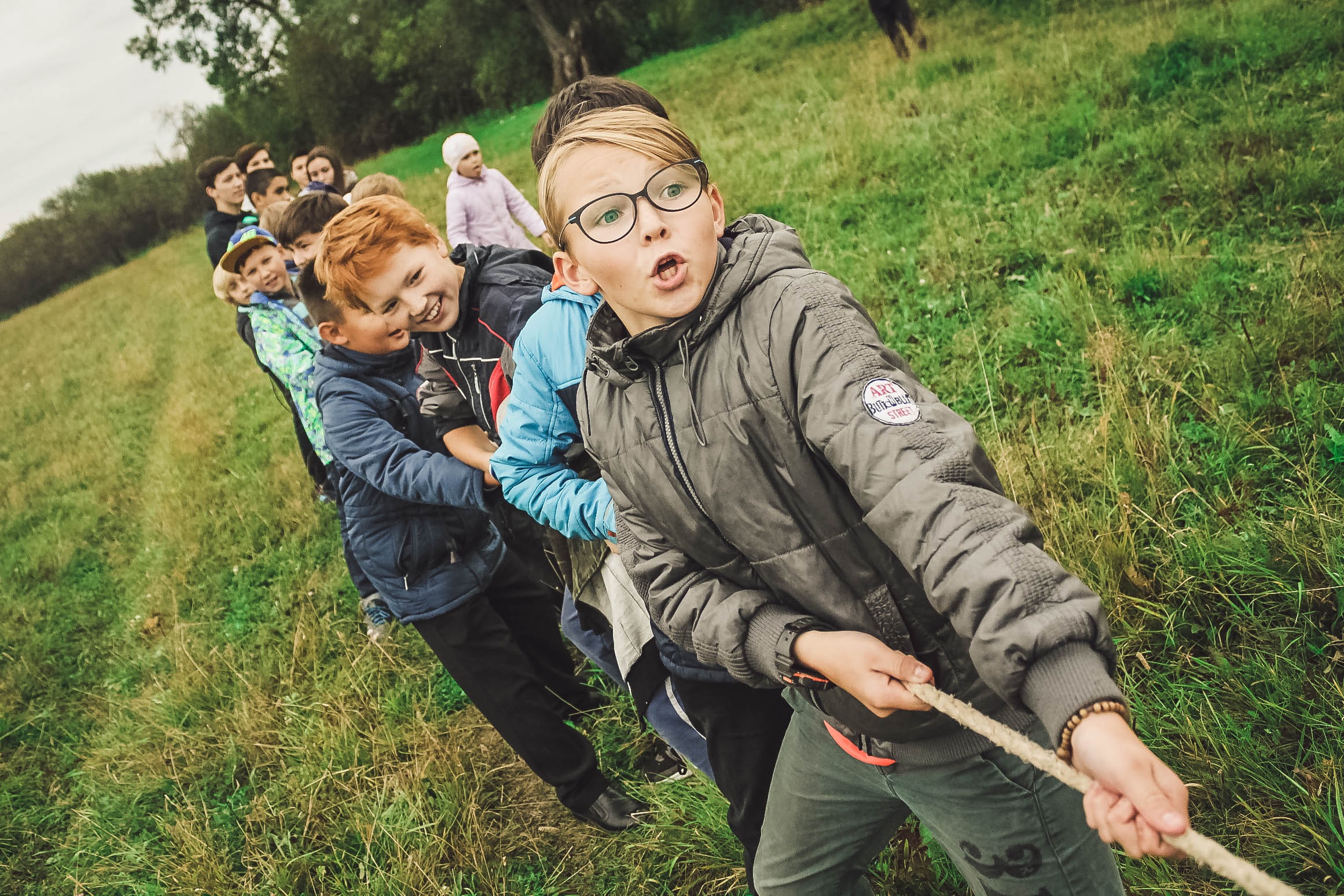
Play Revolution
08/06/2020In 2013, I was fortunate to attend the “Young Minds” Conference in Sydney. Many renowned educational leaders and psychologists from the US, Australia and the UK came together to ponder over the following question: How to grow a good person?”

As many of the speakers spoke from my heart I thought that you might be interested in the latest observations and research concerning our children. Raising children has never been more difficult and parents have never been as anxious as in the 21st century.
We fear that we might fail in what is our biggest ‘gig’ in life. Many of us are reminiscent of our own more carefree childhoods and deep down wish to be able to relax more in their role. The good news is that we can. I, personally, have been reassured by the likes of Dr Wendy Mogul, Dr Carol Dweck, Professor Carla Rinaldi (The veteran when it comes to childhood pedagogy) and many more. Below is a summary of their thoughts, latest research, observations and suggestions to help us navigate through parenthood.
Although lengthy, I urge you to read on and hopefully you might take something away from it.
Abstract
In an increasingly competitive world where materialist possessions, top marks and successful careers appear being the only thing that really matters and ‘make’ or ‘break’ a person, many of the keynote speakers commented that this approach is backfiring on us as parents and educators.
Instead of teaching our children to strive for contentment and finding a purpose in life, we push them to achieve better marks, getter better jobs, bigger houses, earn more money and be one step ahead of the game. Children as young as three are part of the adult ‘rat race’ at the detriment of their emotional development.
Parents are so worried that their children will ‘miss out’ and will not be able to keep up with the fierce competition. What children are really missing out on, however, is their childhood. Childhood – the most important phase in their life! A phase in which life’s most fundamental skills are being learnt that will help children with lifelong learning and help them to develop into ‘good persons’.
So, what does it actually mean to be a ‘good person’?
According to the speakers ‘a good person’ is defined as someone who has a strong set of moral values, is resilient, competent, independent, well balanced, able to form meaningful connections and navigate through life with all its challenges.
The opening speaker of the conference – the Holiness The Dalai Lama – pointed out that all of the world religions fundamentally promote the same moral values to help people become ‘good people’: love, compassion, empathy, self-respect, tolerance, respect for others and forgiveness.
These are values that have prevailed over thousands of years and will still prevail regardless of i-technology or other inventions.
Our job as parents and educators is to teach our children those values and guide them to live by them. More so – we need to model them to our children. Ultimately, we are our child’s primary and most important teacher.
Interestingly enough, all of the world-leading educational psychologists and educators that spoke at the ‘Young Minds’ conference agreed that the only way our children grow into good human beings is through equipping them with a strong set of moral values, help them to identify their character strengths, form trusting relationships, foster self-motivation, self-respect and accept that they may have to fail in their endeavours occasionally. Each of the speakers stressed how important it is to give our children time!
Professor Carla Rinaldi
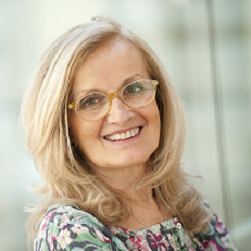
(Internationally renowned advocate for children and childhood with over 40 years experience, President of the world-renowned Reggio Emilia education centre, a philosophy that has been adopted by many Australian early learning institutions).
Professor Rinaldi stressed the importance of establishing a trusting relationship between parents and child. A trusting relationship that allows the child to take risks and explore. She argued that parents and children lead an interdependent relationship where both partners learn from each other. “We learn to value to respect each other and be empathetic. I can exist because of you”. She highlighted that parents and educators grow continuously as human beings and that parents need to educate themselves on an ongoing basis.
“Loving is learning and learning is loving”.
Most importantly, however, she pledges us as parents and educators to give children our time. Children need time to explore and we, as parents, need to make time to listen to them. We need to give them time to marvel and connect with nature and with each other. There is no need to rush them, and there is no need to explain everything. It is our responsibility as parents to offer a sense of wonder. Allowing our children “to be”, allowing them to be playful.
She regards parents as living values and that children thrive in growing up in communities. Communities that support the parents and the children on their journey, communities in which the children can learn from each other. “When a child is born, a mother is born, a father is born. We become a learning community!” Learning communities are important as it teaches children to learn from each other and learn from each other’s mistakes.
She also mentioned that the quality of a child’s experiences in their early life (0-8) will shape the quality of our neural connections, and that the environment is important to education and learning experiences.
Professor Rinaldi states that children are competent learners from the moment they are born. They are innately curious and eager to explore the world, but they need to be given time. She states that children express themselves in ‘hundred languages’. It is our responsibility to recognize and foster this.
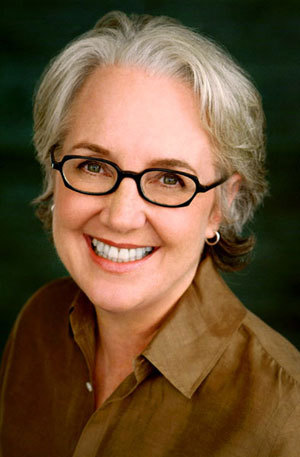
Dr Wendy Mogel
(Acclaimed clinical psychologist & parenting expert in the US. Best-selling author of “The blessing of a B-“ & “The blessing of a skinned knee”). http://www.wendymogel.com
Dr Mogel argues that parents have become helicopter parents who are so anxious about their children’s academic performance that they do anything and everything to create masterpieces at the expense of children’s emotional well-being.
The sad truth is, however, that in the endeavour to overeducate our children the real essence of humanity gets lost. Our children become neurotic human beings who are unable to cope with failure and life’s challenges. She said that every child is gifted in some areas, maybe not in the area we want them to be.
As parents, we need to accept this and stir away from the tedious “gifted & talented” debate. We need to accept our children with all their imperfections and glories and focus on our children’s strengths rather than their weaknesses.
Dr Mogel recommends that parents should shift their focus on teaching children moral values and strategies that assist them with becoming resilient citizens. Parents need to learn that they cannot control everything around them and that they should stop worrying. It is our responsibility to prepare the road for our children rather than smoothing it. We need to prepare them for real life. She cited the example of having an uninspiring teacher. Not every teacher is perfect or might suit the child’s personality, but there will be plenty of uninspiring people and bosses that our children might have to encounter throughout life. It is our job to help them learn how to deal with it.
Letting children play and giving them time is vitally important to their development as it assists them with learning fundamental life skills and helps with developing innate motivation.
Dr Mogel stressed the importance of engaging children in housework, as they need to learn to take responsibility and also contribute to their community.
Another recommended parenting strategy is applying a sense of humour and not taking things too personally when parenting, especially with teenagers. The reason why children and teenagers are letting their hair down at home is that they feel safe and trusted. Often they hold it together at school and are the nicest people. As soon as they enter home the tears start rolling and tantrums often test parents’ patience.
Check out Dr Mogel’s “Overparenting Anonymous 18-step test” on her website or apply the HALT method when you feel overwhelmed. Is the child hungry (really hungry), anxious, lonely or traumatised? No? Well, your child is doing pretty well then.
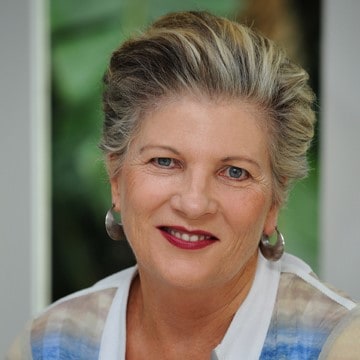
Professor Toni Noble
(Leading Australian educator and educational psychologist, ACU, Founder of the Bounce Back Program).
Professor Noble spoke of the importance of developing self-respect rather than self-esteem. Research has shown that there is no correlation between high self-esteem and outstanding academic outcome.
Self-esteem –an opinion about ourself – is a perception and not a reality. Contrary to current beliefs and according to the latest research, it is often bullies who possess high self-esteem, which is an overinflated sense of self-importance.
In recent years educators and parents focused too much on raising children with high self-esteem, which is now backfiring. Her argument is that if a child is being brought up perceiving itself as perfect, it won’t be able to cope with life’s disappointments and setbacks when things are getting tough. No-one is perfect and we all have our weaknesses. Her recommendation is to develop a healthy sense of self rather than focus on how children feel about themselves. “We like ourself, because of who we are.” We need to acknowledge that it’s ok to be different.
There are seven active ingredients to develop a healthy self-respect in children.
- Get to know your child’s strengths. If you do not know already, work out their character strengths via www.viastrengths.com . There is a children’s test (for children aged 10 upwards) available which is a great tool to determine your child’s strengths and put them to use. Make the results visible and refer to them often. I use this at home with my children and have used it to determine my life’s purpose in later life.
- Howard Gardner’s (1983) theory of multiple intelligences is useful when trying to work out how your child learns. We all have different learning styles and intelligence such as verbal-linguistic, logical-mathematical, visual-spatial, bodily-kinaesthetic, musical-rhythmic, naturalistic, intrapersonal, interpersonal. Try and determine how your child learns best.
- Help your child to develop self-confidence. Let your child take risks. Teach your child that we learn through mistakes and that it is ok to make mistakes. We are allowed to fail. Children need to understand that they have to work hard and hone their skills if they want to succeed. Most importantly, however, teach your children to have an optimistic outlook and look at the bright sight of life. Focus on the positives and not the negatives. “What has worked really well for you? Where was your golden moment today?”, is a great reflective question at the end of the day.
- Self Trust: Teach your child to trust their own judgment and to value the advice from others.
- Self Protection: Children should not put themselves down, or let other people put them down. Teach them to lead a healthy lifestyle. Plenty of exercises and developing healthy food habits is the key.
- Respect for others – Children need to learn to work in a team. “Give it – to get it!” They need to learn to treat others with compassion and focus on the strengths of other children. Children need to be taught to encourage others and become ‘up-standers’ and not ‘by-standers’ when things get tough in the playground.
- Values – What are your values as a family? It is important for children to know those values, and for us as parents to model those values. “Walk your talk”.
Professor Noble emphasises that our aim as parents and educators is to help our children to focus on developing good self-management skills, equip them with strong moral values and putting them into practice.
Professor Carol Dweck

(Leading researcher in the field of motivation. Professor of Psychology, Standford University, USA. Author: Mindset: The New Psychology of Success).
Professor Dweck stresses the importance of fostering a healthy mindset in children. She explained that approaching tasks with a wrong mindset makes children afraid of challenges, and that the learning process is more important that the actual outcome. “It is the journey that matters and not the destination”.
Her latest research with Year 7 graders observed children who had a ‘fixed mindset’ and children with a ‘growth mindset’.
Children with a ‘fixed mindset’ had the attitude that achievement comes naturally and that ‘looking smart’ was enough to get them through life. Those children had the tendency to hide mistakes, were often bored, defensive of their work and blamed teachers for their failures.
Children with a ‘growth mindset’, however, understood that their IQ could be developed through practice, hard work and mentorship. They were innately motivated, overcame challenges easier and were prepared to learn at all costs. Those children understood that ‘the effort’ was the key to their progress and that one learns through mistakes.
Professor Dweck’s research and observations confirmed that children do better in life when they apply what is called a ‘growth mindset’. Children with a ‘growth mindset’ prefer harder challenges, flourish emotionally and simply thrive as human beings. A child with a ‘growth mindset’ works harder towards a goal, learns from mistakes, explores and develops empathy. The good news is that it is never too late to change from a ‘fixed mindset’ to a ‘growth mindset’. She recommends strategies such as:
- praising children’s processes rather than outcomes or results. When children are being praised for their efforts, learning takes on a new meaning .
Praising children’s results can backfire as their only learning motivator is the achievement of a good mark rather than the actual learning process, which is much more valuable for their actual learning.
- use your praises wisely (and do not overpraise).
- let children fail, suffer and work through their challenges.
- Educators and parents should replace the word “fail” with “not yet”. Instead of saying that a student failed in a particular task, it is much more beneficial to say :”The student is not ready yet…” It changes the mindset and motivates the child to work harder.
- when children say: “I am not good at….”, or “ I cannot do…..” – turn it around and say: “You are not good at ….YET, but if you work hard on it, you might get better at it..” It changes a child’s mindset in an instance. It sets a positive and motivational tone.
- Take children out of their comfort zone as neurons form new connections and as it allows them to become resilient. Children learn through constructing knowledge. (Vygotsky, 1987)
An interesting point of observation is that children with a ‘growth mindset’ have lower tendencies towards aggression.
Professor Todd Kashdan
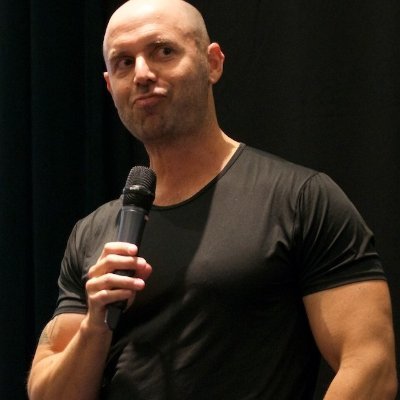
(Clinical Psychologist and a pioneering researcher into curiosity, resilience and happiness. Professor of Psychology, George Mason University, USA; Author of: ‘Curious? Discover the missing ingredient to a fulfilling life’/www.toddkshan.com).
Professor Kashdan also stresses the importance of praising children’s efforts and not outcomes. If a child puts the effort into something, it is all that matters. He suggests that we need to harness a child’s curiosity as much as possible. It is through exploring and investigating, that a child acquires knowledge rather than didactic teaching.
How do we induce curiosity? As parents and educators, we need to provide children with small bits of information, daily novelties, tease them with something, make it exciting, ask open-ended questions, create gaps and encourage them to think ‘outside of the square’. We need to encourage our children to become risk-takers and inquirers who develop an insatiable and hunger for knowledge. Invoking curiosity does not come without discomfort and failures. It requires dealing with unfamiliar situations and uncertainty.
Therefore we, as families, need to provide a safe and secure platform from which our children can explore, investigate and return with newly acquired knowledge. Not only does this process teach our children to become innately motivated, but it also helps to build resilience.
“Turn curiosity inwards, know thyself.” Professor Kashdan assures us that our children will have to endure a lot of painful experiences in their life journey. “You cannot always be happy, but nearly always profoundly aware and curious.” Curiosity, flexible thinking, risk-taking and coping mechanisms are crucial emotional skills that we need to foster in our children.
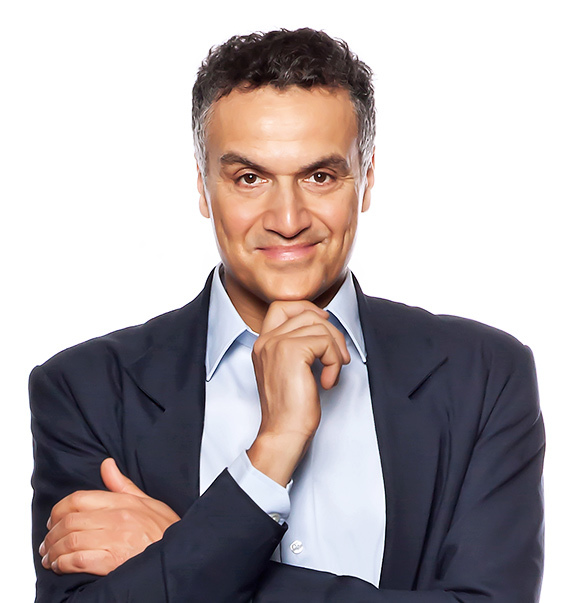
Carl Honoré
(A leading proponent of the Slow Movement, award-winning journalist and best-selling author of “In praise of Slow, Under Pressure and The Slow Fix”).
Carl Honoré argues that parenting has become a race of creating perfect Baby Einstein children. Marks have become more important than learning and competitive sports take pleasure out of simply ‘kicking a ball around’.
21st-century parents are under a lot of pressure and become micro-managers rather than shepherding parents. This approach is backfiring as children as young as three are suffering from anxieties attacks, and as the rate of depression in adolescents is rising. He stresses the importance of allowing our children the “Lady Bug Moment”.
Let your children marvel at the ladybug instead of pulling them along to the next structured and adult-directed activity. He urges parents to: “Stop, take time, marvel, connect and learn”. Children need time to ‘digest’ their experiences as much as we do. They need time to reflect and re-charge. We invest a lot of time and money, yet what they really need is time to roam, time to play and the freedom to explore the world in their own time.
We need to allow our children to suffer from boredom as this is a great springboard of thinking, creativity and imagination. Children need to be allowed to unleash their own curiosity, which fosters innate motivation, the ultimate tool for learning.
He urges parents to back off, relax a bit and micro-manage our children less if we do not want to end up with neurotic and narrow-minded children.
He argues that raising a good and competent child is not product development but a journey of discovery! Teach children the to be the “best they can be” and get them to accept that they cannot be good at everything.
So, what do we need to do to grow a good person?
As a parent, we can somehow regard ourselves as a farmer who tends to his seedling until it grows into the most beautiful flower?
A farmer that prepares the soil, the nutrients, tends to the seedling with care, protects it from too much sunlight, waters it, prunes it, let it grow in its own time, marvel at it. Watches it spreading. Delights in it. Relaxes in it.
A child shows the best side of a human being. The best of us. Then the adults come along and destroy it all… Children are beautiful. They possess a beautiful sense of wonder, spirituality, curiosity, innocence and love. They are highly spirited beings. Let us maintain it. Let’s give them the time they deserve to grow.
Carla Rinaldi

